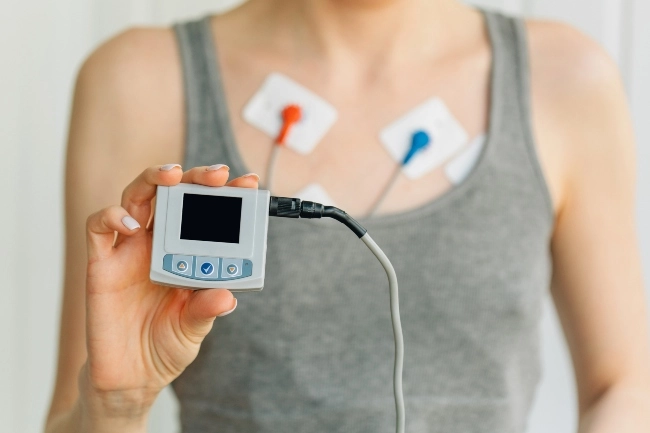Salem Health heart monitoring
Monitoring your heart, caring for your health
Nearly every patient who comes to Salem Health for heart and vascular care will undergo diagnostic testing. As one of the largest cardiovascular programs in the region, we provide fast and accurate test results that lead to more effective diagnoses and
treatments.
Diagnostic testing is often the first step in your journey with Salem Health Heart and Vascular Center. Our team uses some of the most advanced tools available today to reliably and accurately determine the source of your symptoms, as well as the best course of treatment.
Continuous heart monitor is often the best course of action for evaluating signs and symptoms that may be heart-rhythm related, such as chest pain, tiredness, shortness of breath, dizziness, or fainting. It also can identify irregular heartbeats or palpitations as well as assess your risk for future heart-related events in certain conditions.

Heart monitors we use
There are different types of monitors that work in different ways. No matter what type we prescribe, we will always show patients how to use it.
Holter monitor
A Holter monitor is a type of portable electrocardiogram (ECG). It records the electrical activity of the heart continuously over 24 hours or longer while you are away from our clinic.
Cardiac event monitor
A cardiac event monitor is a type of portable electrocardiogram (ECG). It records the electrical activity of the heart when the patient activates it while you are away from our clinic. Event monitors can be worn for a month or longer.
Patch recorder
A patch recorder is a type of device that is worn on the skin and is used to continuously monitor the heart's activity. It is often used to detect arrhythmias (irregular heartbeats) or to monitor the effectiveness of treatment for a heart condition.
Implanted loop recorder
An implanted loop recorder is a small device that is surgically implanted under the skin in the chest area and is used to continuously monitor the heart's activity. It is often used to detect arrhythmias (irregular heartbeats) or to monitor the effectiveness of treatment for a heart condition.